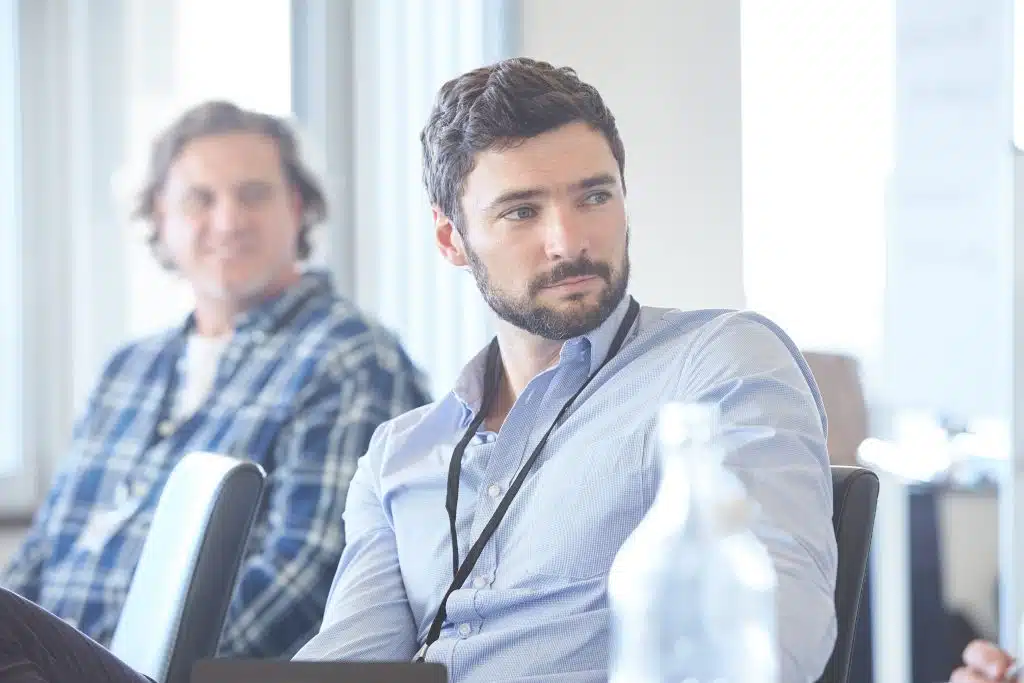Through the experience of our own limitations our unhelpful habits become visible. Regretfully we live in a cultural narrative that makes this ‘seeing’ difficult and in our blindness, we continue to strengthen the very things that weaken us. Why? Well, there’s a payoff. That payoff can be early success driven by an agile mind and smart navigation. Early recognition as someone achieving great things. And such achievement attracts rewards. Status, success, promotion, recognition, opportunity. By default it also crafts a particular world around us. This becomes a kind of reality we exist within. Over time, we exist within it, blindly. Addicted to the payoff, we shape our inner world to deliver more of the same. To the outside world, this looks like success. It becomes the bubble we live in. In this existence we move with, and towards forces that affirm our reality – those people that confirm our view of the world. We’re attracted to those who we perceive can contribute to our own expansion. We have unwittingly become addicted to ourselves, our world view and our success. We pick through our outside influences with great care. At the same time as we collude with those that affirm our version of reality, we tend to diminish, block and be blind to those forces and characters that challenge our version of reality. We move to control or eliminate the things that challenge our sense of ‘how things should be’. Our choices build walls to protect the reality we have generated.
A question though?
Is it possible that in this very narrowing of our interpretation and experience of ‘reality’, we have accidentally cut ourselves off from the richness and diversity of the limitless other existences, points of view and opportunities? Perhaps, and yet this is often not the experience. The fortress has become so strong that often it seems impenetrable – invisible – and it takes a kind of crisis to shift it. Not one we plan. As we mature, and in the exploration of ourselves in relation to leadership, special messages and messengers are sent to rock our version of reality – this can feel like that crisis – and we resist, struggling for control against something (or someone) that some part of us knows is no longer controllable. For the leader – and often the most successful leaders – cracks first manifest as things missing ‘out there’ in the world. We’re convinced it is not us that’s the problem, it is the world (and others in it), that won’t conform with what we want and how we believe it should be. We might feel frustration with self. Frustration at the limitations of others. Staunch commitment to certain ways things should be. Rejection of other points of view. Discounting of ideas. Singular focus on a result or goal. Certainty of the way to get there. Disbelief at how long it takes everyone else around us to arrive at the ‘obvious’. Resentment at how long it takes the system (team, organisation) to mobilise. Our version of reality cracks for good reason. The very thing we once believed was a magical success formula …. turns out to be a prison. We have come to build our world as controllable, predictable, certain but we’re fighting a fluid, fast moving feast of change and disruption and we HAVE to see that to be able to navigate it. At some stage the habitual thinking and habitual responses we act out start to undermine how we feel about ourselves, how we interact with others and the possibilities we create (and close down) as a leader acting from our limitation and our blindness. Our willingness and capacity to wake from this fog is the thing we want to explore. The ego is unlikely to surrender easily.
Time to surrender and see
I want to acknowledge Tony Carew and Humberto Maturana for this week’s insight. Maturana suggests we live in a culture that takes our ability as observers for granted and does not acknowledge the question of “how come we observe what we observe as observers?” What are the clues that we are living with such a blindness or limitation? How can we learn to see how we are seeing and in this, liberate ourselves? As a leader and for all leaders this can be a terrifying question. After all, the success formula that brought you this far feels like a certainty – bankable – a force for how you can craft the next chapters. This is the heart of the issue. Somehow, we have generated a blindness that things exist independently of us as an observer. In this separation, we validate ourselves and our objectivity. We believe that what we observe is reality. Worse, this cultivates an unhelpful and very limited perspective that if others do not observe what we observe, they must be wrong by default. We then become a holder of the truth, demanding compliance to our rational view.
Why would we bother tackling this?
Because some part of us knows that we’ve built this prison. The experience of frustration, anger, sadness, loneliness and rightness brings us to the edge of our humanity. These feelings, even if under control for the majority of the time, creep out in our interactions with each other and at some point we erupt – or at least wake wondering who our authentic self is. Then we have a choice. To ignore the call and wander back into our success forest, or to make our way to the open plain and sit exposed, reflecting on how we created that existence and whether it’s one we wish to perpetuate. Is it possible to generate a new experience of the world by being that change?
How do tackle it?
We start by seeing the choice of the two pathways. We begin by acknowledging the relativity of our observations. We make friends with our observer, exploring and seeking to understand how our observer-self has come to craft reality. What has shaped that reality, and identifying the things that provoke us towards behaving in ways that preserves that. Then over time, by paying attention to times when we are provoked, the moods that we recurrently visit, we unpack the assessments that live behind such provocations and ask ourselves whether they serve the future we are trying to create. Choice points. We can choose to cultivate, let go of or retain the assessments that help us build what we so deeply desire – but from a place where we accept multiple realities, can live with other’s realities and explore infinite possibilities without the need to oppose. We can validate rather than diminish other people’s experiences, descriptions and explanations. We do not claim to own the truth or have privileged access to reality – we flow, like water, with the many realities we experience.
What’s the payoff if I do?
Stepping out of a world of rigidity in order to achieve results and entrusting these can be achieved through an entirely different means. Recreating the world by recreating ourselves as a new observer. We afford ourselves some space, freedom and a perspective that all people are legitimate in their experience of being. We no longer demand obedience, but we focus on being impeccable and accountable for the version of reality we generate and co-generate side by side. We free ourselves of the prison of preferences and prejudices and open our listening for acceptance and shared understanding. I know which reality I’d rather. And still I wrestle!



